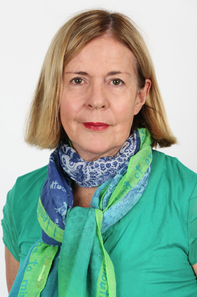Professor Caroline de Costa

Caroline was born in Australia but studied medicine in Dublin, Ireland. She completed a six-year undergraduate course in 1973, after taking several years off to travel around Europe and the Middle East (which included a stint working on a Swedish merchant navy ship, as well as some work translating for Simone de Beauvoir and unexpectedly being airlifted out of Jordan just prior to the 6-Day War). She completed her intern year in Papua New Guinea, where she became interested in obstetrics while working at the Port Moresby General Hospital.
On returning to Ireland with her family for a few years as a registrar, she worked at several very well respected maternity hospitals, completing six months in O&G and six months in neonatal paediatrics. She then completed her Diploma with the Royal College of Obstetricians and Gynaecologists (RCOG) and began working at the Coombe Hospital, where she was the first woman to hold the post of “Assistant Master”. She completed further training over the following years in Ireland and England, and then returned to PNG as a member of RANZCOG. During this period she had several children, and, unable to get maternity leave, enrolled to sit the RACS (first stage of surgical fellowship exams) in order to get time off to have her eldest daughter. As a result, she is now a dual fellow of both the surgical and obstetrics colleges. She had two children by the time she had finished medical school, and two more by the time she was at the Coombe (as a junior registrar). She completed her senior registrar year in Port Moresby, and then moved back to Australia with, at that point, five children.
Returning to Australia, she and her husband (a surgeon) completed various locum posts, and she worked in a range of different places, including briefly as a GP in Port Headland in Western Australia, finally settling in Sydney and doing consultant O&G locums. In Sydney, she worked initially at the Mount Druitt and Auburn hospital, eventually moving from Mt Druitt (for a number of reasons, including the fact that, because it was run by nuns, she was not allowed to prescribe the oral contraceptive pill). She then had both public and private work at Auburn Hospital, followed by many years working in a private practice in Epping as well as at the Sydney Adventist and Ryde Hospitals. During this period, Caroline was also very active in indigenous women’s health, setting up the antenatal and gynaecological clinics of the Aboriginal Medical Service (which still run to this day), as well as establishing RANZCOG’s Indigenous Women’s Health Committee.
From 1992-1999, she was also very involved in RANZCOG. In 1982, the proportion of OBGYN female specialists was 3% with no female representation on any of the main College committees. At this time, she was on the state committee of RANZCOG (then RACOG), and on the Council from 1992, and became actively involved in reforming OBGYN training, in order to get more women into the OBGYN program and advocating for part-time positions for women and maternity leave. As a result of this work, women now comprise 80% of the trainee intake of the RANZCOG specialist program, which Caroline notes “…is a result of selecting people on merit, and not on gender (or their rugby playing skills or where they went to school)!”.
In 1999, she moved to Cairns with the two youngest of her seven children, where she worked as a senior lecturer at the JCU Medical School, and as a consultant to Queensland Health. She was appointed as a full Professor in 2004 at JCU. Along the way, she completed a Masters in Public Health (on pregnancy outcomes of recently-arrived immigrant women) through the University of Sydney, as well as a PhD (also through Sydney) studying the historical, social and political aspects of caesarean section. From 1999-2013, she continued to practice clinical OBGYN including outreach throughout Far North Queensland. While she has now largely stopped clinical work, she continues to teach and examine both undergraduates and postgraduates including PhD students as well as travelling around the country for her various advocacy and editorial roles (she is currently the Editor ofANZJOG). In 2014 she was made a Member of the Order of Australia for “services to medicine”, in particular to the health of indigenous and immigrant women.
Basically I see that my work has taken two main directions (beyond my clinical work). Firstly, I have worked at getting more women into training, both at the trainee and specialist level, and secondly, at getting a voice for women, through books and articles and talks to women about their healthcare. A large part of my work in this latter area has been activism and advocacy around abortion law reform.
[Editor’s note: Caroline is renowned for her advocacy in promoting safe and equitable access to abortion in Australia; in 2005-2006 she was heavily involved in running the campaign to legalise RU-486, the “abortion pill” in Australia to allow women the option of having a medical rather than surgical termination, and she is now currently working with both the Queensland and New South Wales campaigns to decriminalise abortions in those states].
I have to say, professionally, all of the men that I worked with were fantastic, and very supportive…the men I worked with in Auburn hospital were really helpful. Much later in my career, the men were worried that women were going to take away their patients…but I was appointed to the San [hospital, as a consultant] and the sky didn’t fall in!
Work out what you want to do, and then how you’re going to do it. There is now part time work and maternity leave available, you just have to find it! There are now also lots of women (and men) who are interested in more flexible working, so basically, you can do it!
